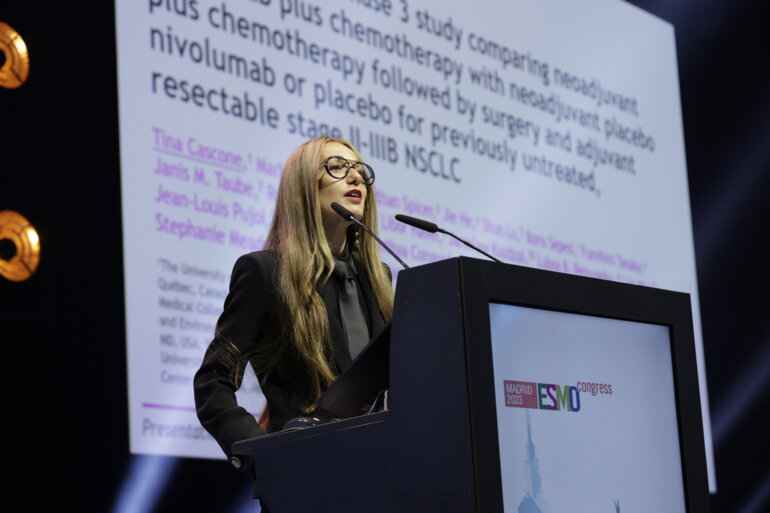
Precision medicine shows promising results for enabling targeted treatment of cancers of unknown primary
Progression-free survival was longer with tumour-specific versus standard chemotherapy in two trials, but further work is needed to improve prognosis for these patients

First-line selpercatinib prolongs PFS in RET-mutated medullary thyroid carcinoma
Study findings support routine RET-mutation testing for all patients with advanced MTC, but further work is needed to identify predictive markers

Adjuvant alectinib is a new treatment strategy for resected ALK-positive NSCLC
Alectinib is the first ALK inhibitor to significantly improve DFS in a phase III trial across disease stages

RET inhibitor nearly doubled PFS in RET fusion-positive advanced/metastatic NSCLC
Results from the LIBRETTO-431 trial reinforce the use of selpercatinib as the first-line choice and are likely to widen patient access to treatment

Adding amivantamab to chemotherapy prolongs PFS in untreated EGFR exon 20 insertion-mutated advanced NSCLC
The bispecific EGFR/MET-directed monoclonal antibody looks set to become the standard of care in this setting, but toxicity has to be managed carefully

New data support perioperative nivolumab for patients with resectable NSCLC
CheckMate 77T demonstrates significantly improved event-free survival with neoadjuvant nivolumab plus chemotherapy followed by adjuvant nivolumab compared with chemotherapy and adjuvant placebo

Therapies targeting the TIGIT and STING pathways hold therapeutic promise
Safety and efficacy data of some novel immunotherapy agents are encouraging, but more research is needed to identify biomarkers and the optimal treatment schedule

Performance data from AI tools show progress in oncology
Cancer imaging and identification of predictive biomarkers are the best performed tasks reported in studies presented at ESMO Congress 2023

An ESMO study reveals that poor quality of real-world data from oncology studies is still an issue
Scarcity of prospective data was reported as well as a limited use of real-world evidence as definitive evidence to regulatory approval decisions of targeted therapies in Europe

Adoptive cell therapy using TILs shows clinically meaningful and durable efficacy in advanced mucosal melanoma
Antitumour responses were consistent with those previously reported for a broader population of patients with advanced melanoma
